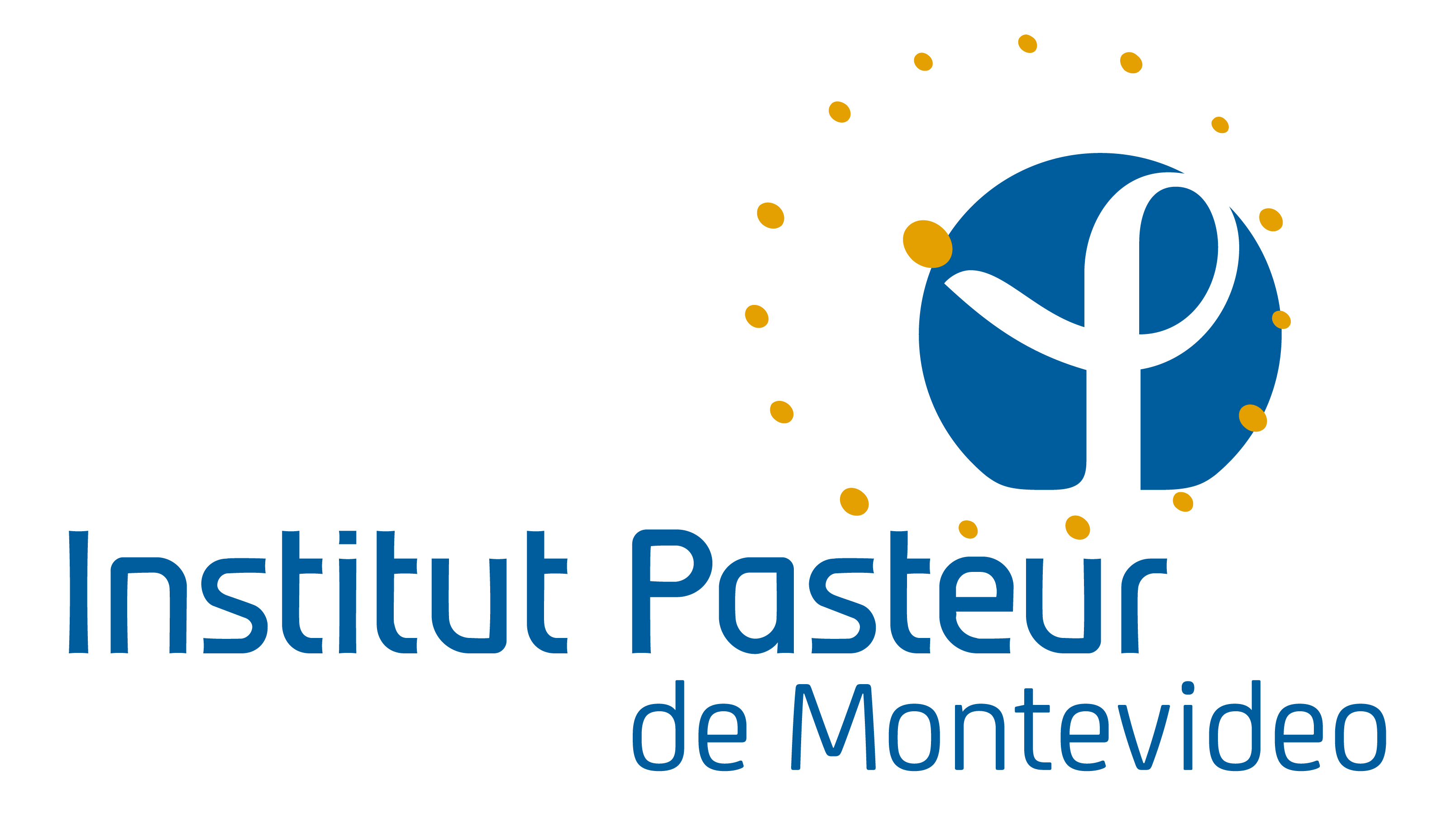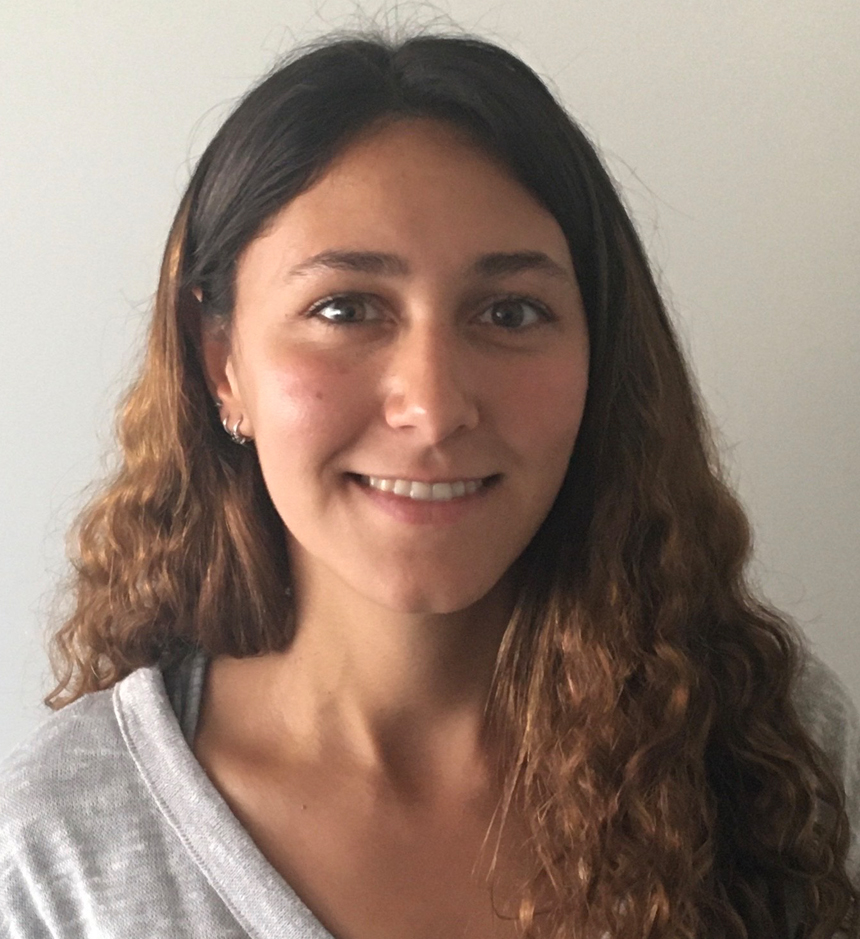Metabolic Diseases and Aging
Obesity is a serious medical problem that involved a high percentage of the world population. Traditionally conceived as a disease of developed countries, it is now recognized as a pandemic by WHO.
In Uruguay, nearly 60% of the adult population are considered overweight or obese.
Moreover, about 10% of the child population is overweight or obese, and they suffer hypertension and diabetes, pathologies associated with obesity.
Understanding the molecular mechanisms involved in pathophysiology of obesity, diabetes and other associated diseases is our main goal. Research aims on Metabolic Diseases and Aging Lab are: a) to do basic science focused on the molecular mechanisms of metabolic diseases, with a strong emphasis on Sirtuins; b) To develop novel pharmacological strategies to treat obesity and metabolic diseases.
Members
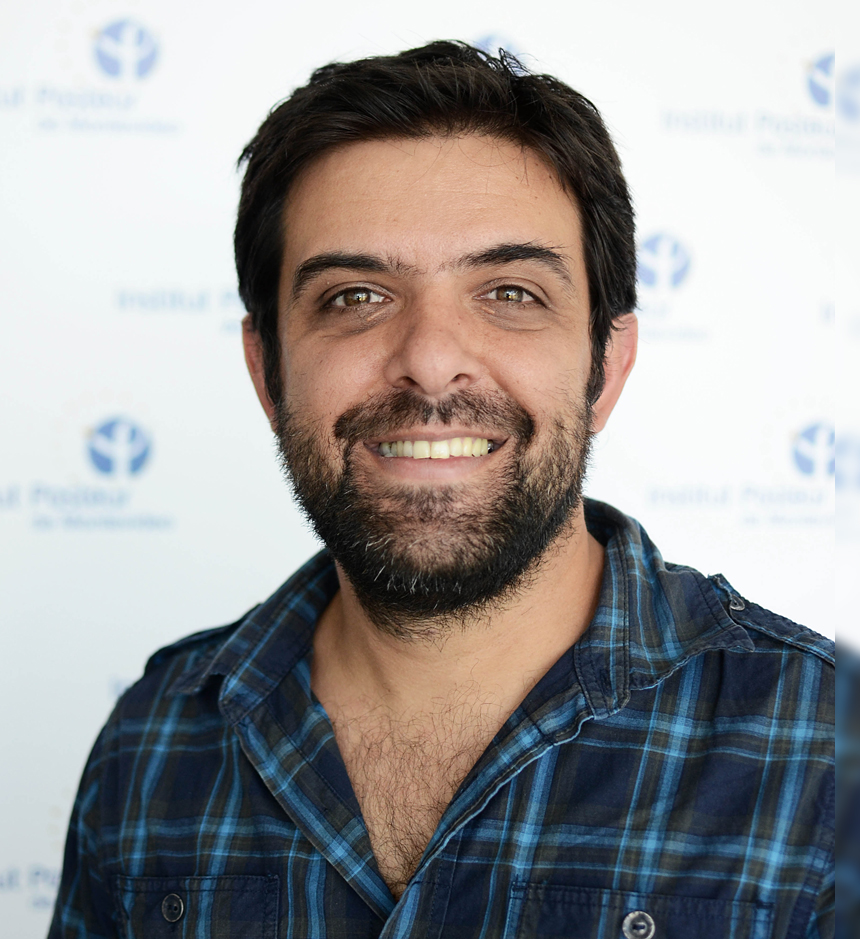



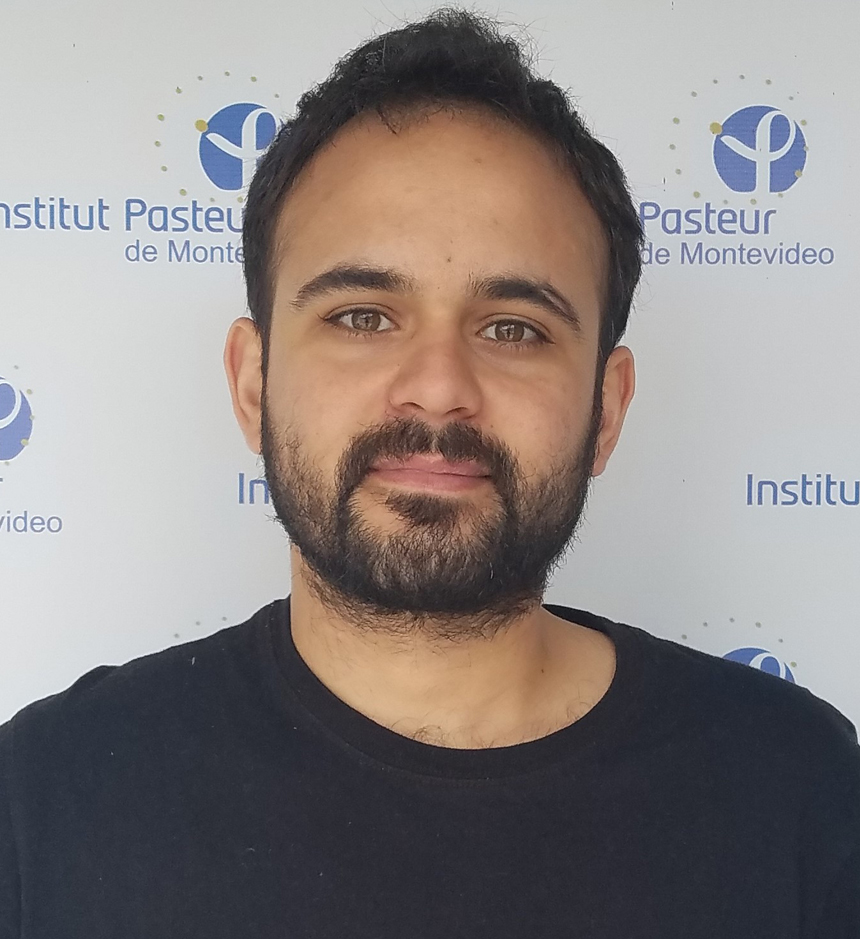
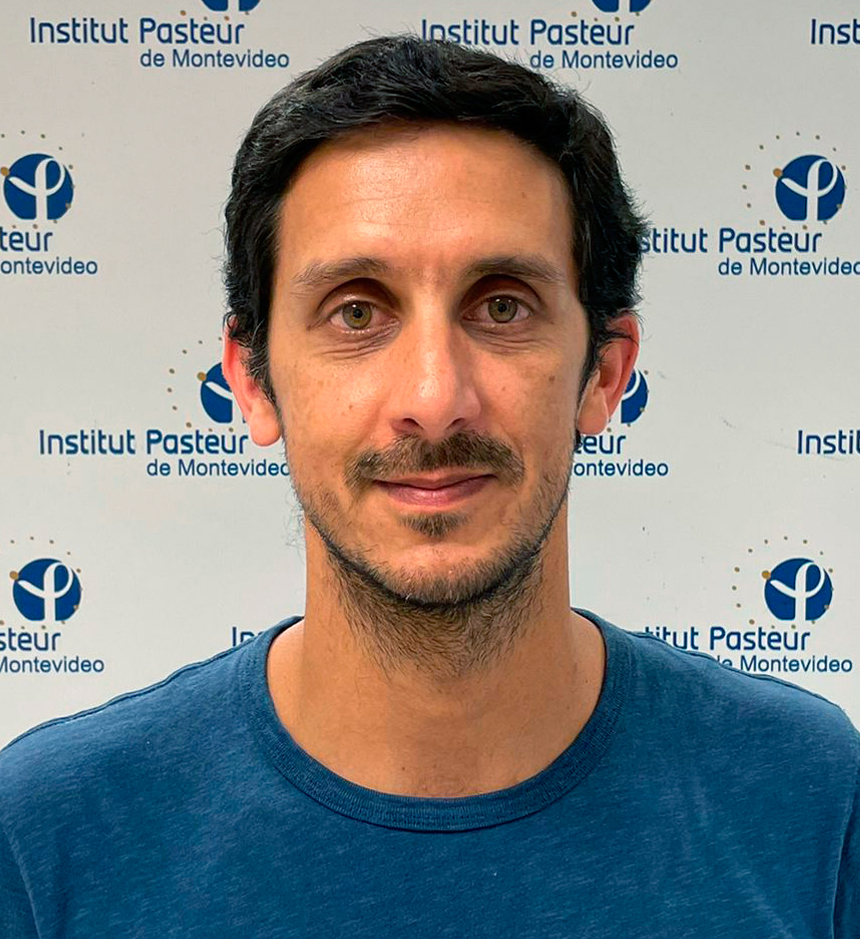
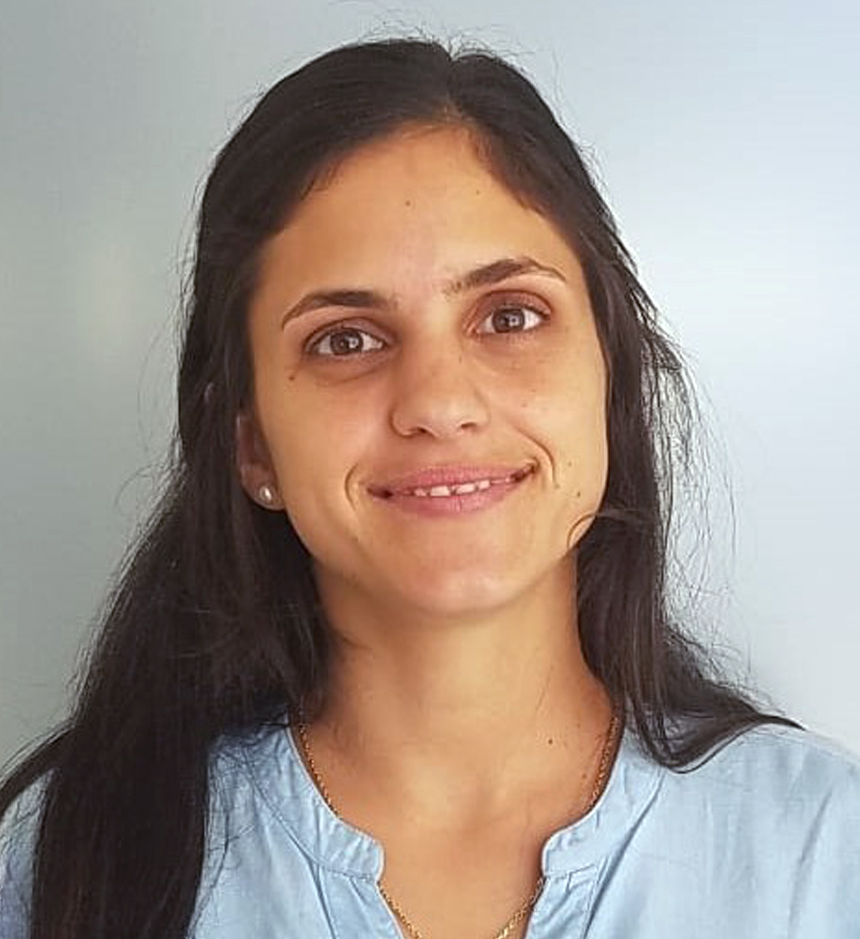
Pía Garat, Eng

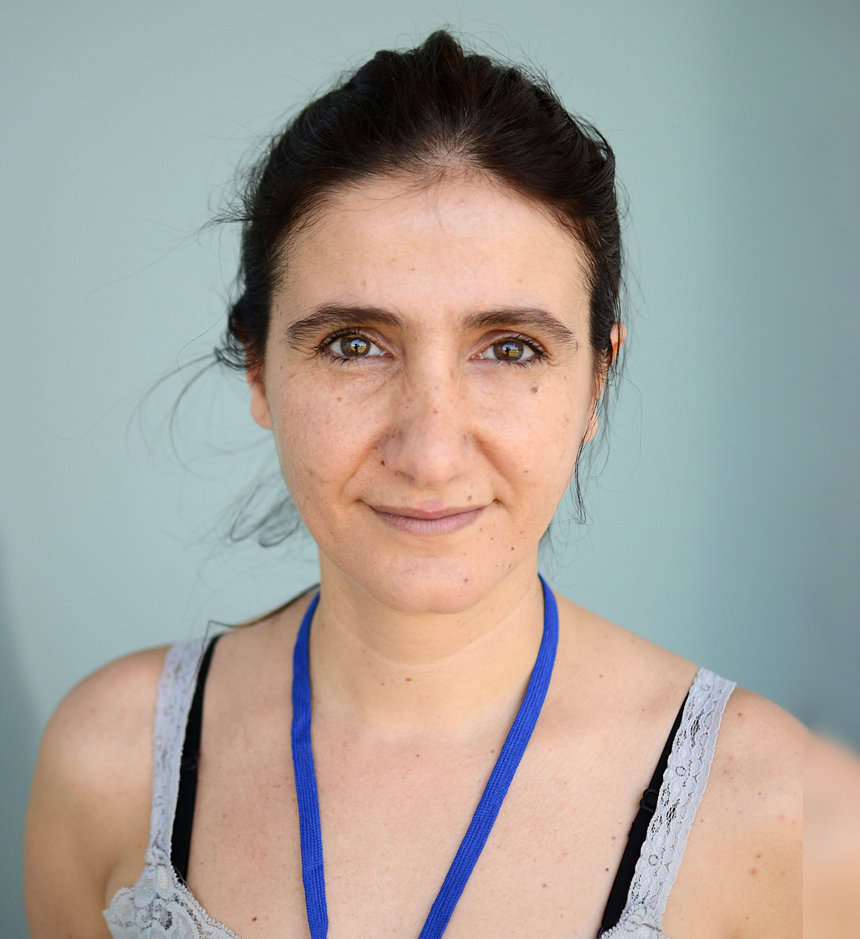
Paola Contreras, PhD<br />
Honorary research associate
Faculty of Medicine, Udelar
contreras@pasteur.edu.uy

Camila Chiesa, BSc
Master's degree student
Fabiana Blanco, MSc
Associate researcher
Research lines
DBC1 as modulator of metabolic function.
The main focus of our research has been to continue to understand the role of the protein Deleted in Breast Cancer-1 (DBC1), a SIRT1 regulator, in the control of metabolism and metabolic diseases. In order to achieve that, we took four different scientific approaches.
A) We continued using the genetic deletion of DBC1 mouse model
as an experimental paradigm in metabolism regulation;
B) we engaged in studying how DBC1 function is regulated in vivo. C) We decided to generate a loxp/loxp DBC1 mouse model as a tool for tissue-specific knockout of DBC1. D) Based on our previous data that DBC1 regulates the “healthy obesity” phenotype, we began to search for secreted targets of DBC1 that may account for its effects.
Novel regulators of metabolism and metabolic diseases
: focus on Inflammation. Chronic inflammation has emerged in the past few years as a major player in the development of metabolic diseases, with accumulating evidences showing that both innate and adaptive immune cells are involved in the onset and progression of obesity, type II diabetes and atherosclerosis. During this period, we begun to work with two different proteins in context of chronic inflammation and metabolic diseases: SIRT6 and “TMEM176B. Research and development in anti-obesity drugs.
The development of novel compounds for pharmacological treatment
of metabolic diseases was a seminal part of our G5 proposal. We associated in close collaboration with Dr. Carlos Batthyany, who together with Dr. Virginia Lopez had already designed several compounds aimed to treat atherosclerosis. Together, we showed that these compounds are effective in vivo for atherosclerosis. In the course of this scientific collaboration, we designed together a novel family of compounds, one of which is showing striking results on prevention of obesity, insulin resistance and non-alcoholic liver steatohepatitis (NASH).
Patents
- “Treatment methods of conditions related to inflammation using pluripotent anti-inflammatory and metabolic modulators”. Inventors: Batthyany, C., Lopez, G.V., Escande, C., Porcal, W., Dapueto, R., Rodriguez, R., Galliussi, G., and Garat, M.P. 2016. Provisional patent application in the United States; to be assigned // on hold.
- “Derivatives of trolox and methods of use in the treatment and prevention of conditions related to inflammation”. Inventors: Batthyany, C., Lopez, G.V., Dapueto, R., Escande, C., and Rodriguez, R. 2016. Non-provisional patent application in the United States; to be assigned // on hold.
Projects
2014-2019 – Young leaders grant. INNOVA – ANII.
2017-2018 – Eolo Pharma: A pharmaceutical company for the development of new compounds for the treatment of metabolic and cardiovascular diseases. CITES-SANCOR. Co-responsible: Carlos Batthyany and Virginia López.
2017-2019 – New role of CD38 in the regulation of acute inflammatory response. R&D scholarship, CSIC. Co-responsible: Paola Contreras.
2016-2018 – Agence universitaire de la Francophonie (AUF). Co-responsible: Marcelo Hill (Laboratory of Immunoregulation and Inflammation).
2015-2017 – Role of the DBC1 protein in the physiology of fat tissue during obesity. Fondo Clemente Estable. ANII.
2015-2017 – Creation and development of NutraScan – ANII Alianza Pasteur-Granuy. Co-responsible: Carlos Batthyany.
Main publications
vacio
2017
- Prieto-Echagüe V, Lodh S, Colman L, Bobba N, Santos L, Katsanis N, Escande C, Zaghloul NA, Badano JL. BBS4 regulates the expression and secretion of FSTL1, a protein that participates in ciliogenesis and the differentiation of 3T3-L1. Sci Rep. 2017 Aug 29;7(1):9765. doi: 10.1038/s41598-017-10330-0. PubMed PMID: 28852127.
- Matalonga J, Glaria E, Bresque M, Escande C, Carbó JM, Kiefer K, Vicente R, León TE, Beceiro S, Pascual-García M, Serret J, Sanjurjo L, Morón-Ros S, Riera A, Paytubi S, Juarez A, Sotillo F, Lindbom L, Caelles C, Sarrias MR, Sancho J, Castrillo A, Chini EN, Valledor AF. The Nuclear Receptor LXR Limits Bacterial Infection of Host Macrophages through a Mechanism that Impacts Cellular NAD Metabolism. Cell Rep. 2017 Jan 31;18(5):1241-1255. doi: 10.1016/j.celrep.2017.01.007. PubMed PMID: 28147278.
2016
- Camacho-Pereira J, Tarragó MG, Chini CC, Nin V, Escande C, Warner GM, Puranik AS, Schoon RA, Reid JM, Galina A, Chini EN. CD38 Dictates Age-Related NAD Decline and Mitochondrial Dysfunction through an SIRT3-Dependent Mechanism. Cell Metab. 2016 Jun 14;23(6):1127-39. doi: 10.1016/j.cmet.2016.05.006. PubMed PMID: 27304511; PubMed Central PMCID: PMC4911708.
- Chini CC, Espindola-Netto JM, Mondal G, Guerrico AM, Nin V, Escande C, Sola-Penna M, Zhang JS, Billadeau DD, Chini EN. SIRT1-Activating Compounds (STAC) Negatively Regulate Pancreatic Cancer Cell Growth and Viability Through a SIRT1 Lysosomal-Dependent Pathway. Clin Cancer Res. 2016 May 15;22(10):2496-507. doi: 10.1158/1078-0432.CCR-15-1760. PubMed PMID: 26655844; PubMed Central PMCID: PMC4867252.
2015
- Santos L, Escande C, Denicola A. Potential Modulation of Sirtuins by Oxidative Stress. Oxid Med Cell Longev. 2016;2016:9831825. doi: 10.1155/2016/9831825. Epub 2015 Dec 14.
- Chini CC, Espindola-Netto JM, Mondal G, Guerrico AM, Nin V, Escande C, Sola-Penna M, Zhang JS, Billadeau DD, Chini EN. SIRT1-Activating Compounds (STAC) Negatively Regulate Pancreatic Cancer Cell Growth and Viability Through a SIRT1 Lysosomal-Dependent Pathway. Clin Cancer Res. 2015
- Mathison A*, Escande C*, Calvo E, Seo S, White T, Salmonson A, Faubion WA Jr, Buttar N, Iovanna J, Lomberk G, Chini EN, Urrutia R. Phenotypic Characterization of Mice Carrying Homozygous Deletion of KLF11, a Gene in Which Mutations Cause Human Neonatal and MODY VII Diabetes. Endocrinology. 2015 Oct;156(10):3581-95. Shared first authorship
2014
- Stout MB, Tchkonia T, Pirtskhalava T, Palmer AK, List EO, Berryman DE, Lubbers ER, Escande C, Spong A, Masternak MM, Oberg AL, LeBrasseur NK, Miller RA, Kopchick JJ, Bartke A, Kirkland JL. Growth hormone action predicts age-related white adipose tissue dysfunction and senescent cell burden in mice. Aging (Albany NY). 2014 Jul 20. [Epub ahead of print] PubMed PMID: 25063774
- Escande C, Nin V, Pirtskhalava T, Chini CC, Tchkonia T, Kirkland JL, Chini EN. Deleted in Breast Cancer 1 limits adipose tissue fat accumulation and plays a key role in the development of metabolic syndrome phenotype. Diabetes. 2014 Jul 22. pii: DB_140192. [Epub ahead of print] PubMed PMID: 25053585.
- Clasen BF, Poulsen MM, Escande C, Pedersen SB, Møller N, Chini EN, Jessen N, Jørgensen JO. Growth hormone signaling in muscle and adipose tissue of obese human subjects: associations with measures of body composition and interaction with resveratrol treatment. J Clin Endocrinol Metab. 2014 Jul 22:jc20142215. [Epub ahead of print] PubMed PMID: 25050904.
- Escande C, Nin V, Pirtskhalava T, Chini CC, Thereza Barbosa M, Mathison A, Urrutia R, Tchkonia T, Kirkland JL, Chini EN. Deleted in Breast Cancer 1 regulates cellular senescence during obesity. Aging Cell. 2014 Jul 3. doi: 10.1111/acel.12235. [Epub ahead of print] PubMed PMID: 24992635.
- Davidge-Pitts C, Escande C, Conover CA. Preferential expression of PAPPA in human preadipocytes from omental fat. J Endocrinol. 2014 Jul;222(1):87-97. doi: 10.1530/JOE-13-0610. Epub 2014 Apr 29. PubMed PMID: 24781252; PubMed Central PMCID: PMC4104415.
- Nin V, Chini CC, Escande C, Capellini V, Chini EN. Deleted in breast cancer 1 (DBC1) protein regulates hepatic gluconeogenesis. J Biol Chem. 2014 Feb 28;289(9):5518-27. doi: 10.1074/jbc.M113.512913. Epub 2014 Jan 10. PubMed PMID: 24415752; PubMed Central PMCID: PMC3937628.
- Calliari A, Bobba N, Escande C, Chini EN. Resveratrol delays Wallerian degeneration in a NAD(+) and DBC1 dependent manner. Exp Neurol. 2014 Jan;251:91-100. doi: 10.1016/j.expneurol.2013.11.013. Epub 2013 Nov 16. PubMed PMID: 24252177.
- Chini CC, Guerrico AM, Nin V, Camacho-Pereira J, Escande C, Barbosa MT, Chini EN. Targeting of NAD metabolism in pancreatic cancer cells: potential novel therapy for pancreatic tumors. Clin Cancer Res. 2014 Jan 1;20(1):120-30. doi: 10.1158/1078-0432.CCR-13-0150. Epub 2013 Sep 11. PubMed PMID: 24025713; PubMed Central PMCID: PMC3947324.
2013
- Chini EN, Chini CC, Nin V, Escande C. Deleted in breast cancer-1 (DBC-1) in the interface between metabolism, aging and cancer. Biosci Rep. 2013 Aug 23;33(4). pii: e00058. doi: 10.1042/BSR20130062. Review. PubMed PMID: 23841676; PubMed Central PMCID: PMC3755336.
- Clasen BF, Krusenstjerna-Hafstrøm T, Vendelbo MH, Thorsen K, Escande C, Møller N, Pedersen SB, Jørgensen JO, Jessen N. Gene Expression in Skeletal Muscle after an Acute Intravenous GH Bolus in Human Subjects: Identification of a Mechanism Regulating ANGPTL4. J. Lipid Res. 2013
- Lomberk G, Grzenda A, Mathison A, Escande C, Zhang JS, Calvo E, Miller LJ, Iovanna J, Chini EN, Fernandez-Zapico ME, Urrutia R. Kruppel-like Factor 11 Regulates the Expression of Metabolic Genes via an Evolutionarily Conserved Protein-Interaction Domain Functionally Disrupted in Maturity Onset Diabetes of the Young. J Biol Chem. 2013 Apr 15. PubMed PMID: 23589285.
- Escande C, Nin V, Price NL, Capellini V, Gomes AP, Barbosa MT, O’Neil L, White TA, Sinclair DA, Chini EN. The flavonoid apigenin is an inhibitor of the NAD+ase CD38: implications for cellular NAD+ metabolism, protein acetylation, and treatment of metabolic syndrome. Diabetes. 2013 Apr;62(4):1084-93.
2012
- Nin V*, Escande C*, Chini CC, Giri S, Camacho-Pereira J, Matalonga J, Lou Z, Chini EN. Role of deleted in breast cancer 1 (DBC1) protein in SIRT1 deacetylase activation induced by protein kinase A and AMP-activated protein kinase. J Biol Chem. 2012 Jul 6;287(28):23489-501 * Shared first authorship
- Chifflet S, Justet C, Hernández JA, Nin V, Escande C, Benech JC. Early and late calcium waves during wound healing in corneal endothelial cells. Wound Repair Regen. 2012 Jan-Feb;20(1):28-37.
2010
- Chini CC, Escande C, Nin V, Chini EN. HDAC3 is negatively regulated by the nuclear protein DBC1. J Biol Chem. 2010 Dec 24;285(52):40830-7
- Hartman WR, Pelleymounter LL, Moon I, Kalari K, Liu M, Wu TY, Escande C, Nin V, Chini EN, Weinshilboum RM. CD38 expression, function, and gene resequencing in a human lymphoblastoid cell line-based model system. Leuk Lymphoma. 2010 Jul;51(7):1315-25.
- Novak CM, Escande C, Burghardt PR, Zhang M, Barbosa MT, Chini EN, Britton SL, Koch LG, Akil H, Levine JA. Spontaneous activity, economy of activity, and resistance to diet-induced obesity in rats bred for high intrinsic aerobic capacity. Horm Behav. 2010 Aug;58(3):355-67. doi:10.1016/j.yhbeh.2010.03.013.
- Escande C, Chini CC, Nin V, Dykhouse KM, Novak CM, Levine J, van Deursen J, Gores GJ, Chen J, Lou Z, Chini EN. Deleted in breast cancer-1 regulates SIRT1 activity and contributes to high-fat diet-induced liver steatosis in mice. J Clin Invest. 2010 Feb 1;120(2):545-58.
2009
- Novak CM, Escande C, Gerber SM, Chini EN, Zhang M, Britton SL, Koch LG, Levine JA. Endurance capacity, not body size, determines physical activity levels: role of skeletal muscle PEPCK. PLoS One. 2009 Jun 12;4(6):e5869
2006
- Aksoy P, Escande C, White TA, Thompson M, Soares S, Benech JC, Chini EN. Regulation of SIRT 1 mediated NAD dependent deacetylation: a novel role for the multifunctional enzyme CD38. Biochem Biophys Res Commun. 2006 Oct 13;349(1):353-9
2005
- Benech JC, Escande C, Sotelo JR. Relationship between RNA synthesis and the Ca2+-filled state of the nuclear envelope store. Cell Calcium. 2005 Aug;38(2):101-9.
